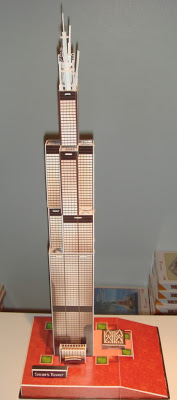El muro de Berlín en realidad aumentada.
HOPPALA.
Stuttgart, Alemania
Realidad aumentada.
Layar.
Amsterdam.
Aquí.
GRAPHICS: Best2010, AVE a Valencia
Video gráfico, pulse aquí
Por David Alameda
EL MUNDO
Diciembre 2010
Gráfico interactivo, pulse aquí.
Por Javier Barriocanal
EL MUNDO
Diciembre 2010
Una oportunidad para Valencia
Por Pedro Jiménez
EL MUNDO
19 de diciembre 2010
Locomotoras históricas
Por Rafael Estrada
EL MUNDO
17 de diciembre de 2010
El AVE a Valencia
Por Rafael Estrada
EL MUNDO
17 de diciembre de 2010
Atocha vs Joaquín Sorolla
Por Pedro Jiménez
EL MUNDO.
19 de diciembre 2010
GRAPHICS: Social Media, Idfive
Historia de los medios sociales.
Idfive.com
GRAPHICS: Barómetro de medios, KPMG
Anytime, anywhere
The rising demand of media on the move KPMG’s media and entertainment barometer kpmg.co.uk
Third Media and Entertainment Barometer, a six-monthly consumer survey conducted on behalf of KPMG byYouGov.
«Over the past year traditional media has held up well, and despite the ever growing availability of online media, consumers still expect and consume both. This has led to a mixed ecology, with people accessing content in the traditional way and online. The popularity of consuming media in the traditional way remains very resilient.» David Elms, KPMG
Medios tradicionales.
Descensos en radio y diario, aumentan la TVs y las revistas.
Aumenta los encuestados que pagarían por contenidos en la red.
Para periódicos online, del 24% al 33% en un año.
Los móviles no son para leer periódicos.
Sólo el 2% de los encuestados tiene tableta.
El 16% lee diarios en el dispositivo.
Paywalls & Subscriptions
•
Subscribers most commonly paid for music (23 percent), online gaming (21 percent), business news/analysis (19 percent), online newspapers/ magazines (19 percent) and TV (19 percent).
Newspapers, books and print magazines
•
86 percent of consumers said they preferred to consume media offl ine rather than online. The most popular reason was a preference to reading physical copies.
•
Amongst those who had engaged in new media activities, the highest mean spend was on digital books, with 22 percent of those spending more than £5.
•
Over the past six months there had been a small increase in the proportion reading digital books.
– Newspaper and magazine readers aged 18-34 were less likely to pay for print media compared with the general population.
– Some major national newspaper groups have introduced paywalls for their online content, and all eyes have been on whether they are likely to be successful in the long term. Our survey suggests that as long as content is available for free elsewhere, the majority of consumers (79 percent) would rather find a different provider than pay for content online.
KPMG in the UK has over 10,000 partners and staff working in 22 offices and is part of a strong global network of member firms. Our vision is simple – to turn knowledge into value for the benefit of our clients, people and our capital markets.
GRAPHICS: Personal Data Ecosystem, FTC
Protecting Consumer Privacy in an Era of Rapid Change
Federal Trade Commission
Diciembre de 2010
Peligro en la red.
Ejemplos:
– if you browse for products and services online, advertisers might collect and share information about your activities, including your searches, the websites you visit, and the content you view;
– if you participate in a social networking site, third-party applications are likely to have access to the information you or your friends post on the site;
– if you use location-enabled smartphone applications, multiple entities might have access to your precise whereabouts;
– if you use loyalty cards at a grocery store or send in a product warranty card, your name, address, and information about your purchase may be shared with data brokers and combined with other data.
El ecositema de los datos personales.
Los coleccionistas de datos.
Ejemplos de cómo se usa la información personal.
PRESS: Umberto Eco vs WikiLeaks
Portada de Libération de hoy.
Umberto Eco afirma que las filtraciones no son más que dossiers de prensa copiados de los diarios.
La fundación alemana Wau-Holland Stiftung gestiona los donativos a WikiLeaks, según el rotativo Neuen Westfälischen. Aquí.
750.000 euros de ingresos.
10 empleados.
En 1981 Herwart ‘Wau’ Holland-Moritz creó el Chaos Computer Club, que ya logró colarse en servidores de bancos e instituciones rompiendo todo tipo de sistemas informáticos de protección.
Pionero del ‘ética de los hacker’ y maestro del pirateo.
Umberto Eco escribe hoy en Liberation que las revelaciones de WikiLeaks son solo informaciones copiadas de los diarios y pone varios ejemplos.
‘¿Por qué entonces tanta agitación por las revelaciones de esos dossiers’?
Julien Assange, australiano de 39 años, siguen en busca y captura por petición del Tribunal Supremo de Suecia (por abusos sexuales).
Según The Independent, se encuentra escondido en el sureste del Reino Unido, cuestión que investiga Scotland Yard.
Interpol emitió una ‘notificación roja’ (el nivel más alto) para detener a Assange por violación, abusos sexuales y coacción.
Así, Kristinn Hrafnsson se ha convertido en la voz de WikiLeaks, que ahora amenaza con desvelar información sobre grandes corporaciones (Bank of America cayó un 3% en bolsa).
Portada de Time, 13 de diciembre
WWW: 20 años de la Web, ¿muerta o viva?, Scientific American
Especial en Scientific American
The Web Turns 20: Linked data Gives People Power (4 partes)
Artículo de Tim Berners-Lee en exclusiva: preservar los principios básicos de la red para no destruirla.
The Web is (not) dead, en respuesta a Wired.
Apuesta por los datos puros en la red y en sus relaciones con otros datos para desarrollar estudios y análisis de todo tipo.
Diagrama de los conjuntos de datos en formato Linked Open Data publicados por organizaciones e indiviudos.
Richard Gyganiak y Anja Jentzch
Linked Data.
Linked Data is about using the Web to connect related data that wasn't previously linked, or using the Web to lower the barriers to linking data currently linked using other methods. More specifically, Wikipedia defines Linked Data as «a term used to describe a recommended best practice for exposing, sharing, and connecting pieces of data, information, and knowledge on the Semantic Web using URIs and RDF.»
This site exists to provide a home for, or pointers to, resources from across the Linked Data community.
ICONS: Sears Towers, Bruce Graham
Ha fallecido BRUCE GRAHAM, arquitecto de la Torre Sears, icono de la ciudad de los Blues Brothers.
Bogotá, Colombia, 1925-Florida, EEUU, 2010.
Willis Tower, antes Sears Tower.
Chicago, Illinois.
1973.
Fotografía de LENSIMPRESSIONS.
JEFFREIMER y cómo hacerla con fichas de Lego.

De noche, DANHELLER.
MAQUETA del edificio.
La terraza del PÁNICO.
VIDEOS explicativos.
BRANDS: BRC, multimedia
BRC.
Brand, Education, Entertainment, Media and Events.
Desde hace 27 años.
Diseño, producción, creacción.
De cualquier cosa.
Líderes creativos.
Proyectos multimedia.
EEUU, Reino Unido, Holanda, China.
Trabajos para Walt Disney, NASA, Heineken, Ford, MGM, VW…
BRC USA – Headquarters
2711 Winona Avenue
Burbank, California 91504
+1 818 841 8084
+1 818 841 4996 fax
WWW: Google Fiber para comunidades de vecinos
GOOGLE FIBER
Experimento.
Hasta el 26 de marzo, está recogiendo peticiones de ayuntamientos y comunidades que quieran ser los pioneros.
Google quiere montar una red de fibra de alta velocidad, ultra rápida, en EEUU.
Internet, video, voz.
1 Gb por segundo.
Fibra óptica. No DSL, no cable.
Red comunitaria.
Ejemplo: Propuesta de GOOGLETWINPORTS.
Comunidad de Duluth-Superior (Minesota y Wisconsin, EEUU).
Proyecto independiente en la region de Twin Ports.
Acepta donaciones.
































